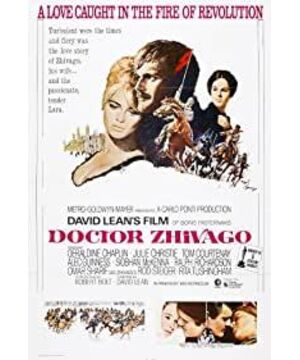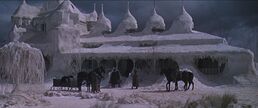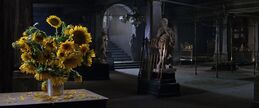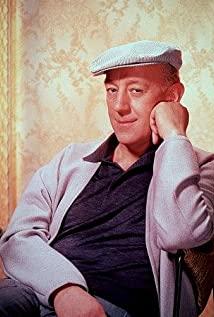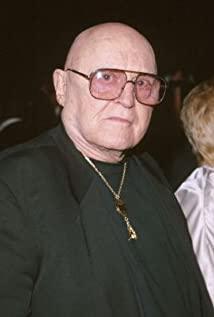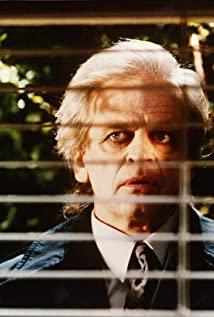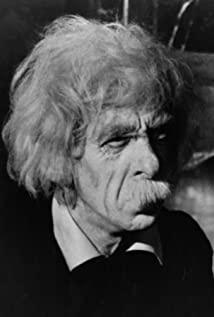Through the description of the love story between Doctor Zhivag and Nurse Nora, the film highlights from the changes of Doctor Zhivag in different historical transformation periods, a person who breaks through the shackles of social ideology and narrow nationalism, transcends social reality and is full of ideals. The image of a Russian intellectual with a kind-hearted and intellectual spirit is always maintained, and at the same time, it also exudes the eternal theme of supreme love that transcends the boundaries of time, space and ideology.
Love, the film mainly reflects Dr. Zhivag's love for people, love for family, and love for love.
Love for people: When the marchers were suppressed by the Tsarist Guard, Dr. Zhivag rushed out to bandage the wounds at the risk of his life; when he went to the Ural Mountains, when he saw the devastated motherland, he was burnt to the ground. When he was in the village, when the cattle and sheep were frozen to death, his eyes were stagnant, and his expression was heavy, especially when he learned that all this was caused by an unprovoked misunderstanding, he was angry. He could lay down his life to save an old woman, but he would never give up the prosecution for the indiscriminate killing of innocents caused by the commander's misjudgment. This is the conscience of an intellectual, and it is an intellectual's compassion for the motherland and all beings, and behind this compassion is the great love of a person with a conscience.
Love for family: It is also shown in the film, no matter what the situation is, Dr. Zhivag always loves his family, and every time we separate and reunite, we can see the deep affection with Tonia. Hug, every letter from Hongyan's family is filled with deep thoughts and love for the family, especially after Tonia was pregnant, Dr. Zhivag cried to Nora for the happiness of the family, "I will never Come”, what kind of parting, what kind of reluctance to give up, but the concept of home always occupied the most important position in Zhivag’s heart, and the reluctance eventually gave up. The scene after Dr. Zhivag escaped from the guerrillas was also shocking. Braving the howling Siberian wind, the wind and snow mercilessly attacked the earth, but the dying Zhivag could never let go of Tonia's child and father-in-law. As a result, he mistook others for his family in the wind and snow, and that heart-piercing cry was Zhivag's most sincere love for his family.
Love for Nora: The love of love is the brightest point of the film. From the flaming Ukrainian front line to the quiet and beautiful Valekino to the eventful Yuryagin to Moscow, it is performed everywhere. Duan Jiuqu's ileal love story. When Dr. Zhivag met Nora for the first time, a seed of love had already sprouted in his heart. No matter what difficulties and obstacles he encountered in the future, it would continue to grow, because this love was born from Zhivag. Inner love is pure love unmixed with any desires, and it is the most primitive impulse of human nature, especially after the October Revolution, when the people who had been oppressed for hundreds of years rejected all capitalism and feudalism, It is equivalent to all personal emotions and free thoughts, including personal love when blindly xenophobic. This kind of love has never been extinguished. On the contrary, it has brought Zhivag's yearning for beauty and strengthened his confidence. Under this special circumstance, Doctor Zhivag's love for Nora is even more precious. In a world where everything is blocked, their love is like a flower blooming in a concrete wall. Because this kind of love is pure and kind in itself, it represents the pursuit of happiness and yearning for a better life, it breaks through the barriers of social ideology, is not swayed by class limitations, and transcends narrow nationalities The level of ism and utilitarianism, because of this, Dr. Zhivag's love is so persistent and so deep. This kind of love transcends all the hypocrisy of society and faces the depths of human nature.
Another highlight of the film is that it portrays a unique image of a Russian intellectual. From Zhivag's sympathy for the toiling masses and his accusing eyes of the guard captain, we can see his dissatisfaction and criticism of the current situation of Russian society at that time. , which is why he said excitedly after the victory of the October Revolution: "What a superb surgical operation! He skillfully cut off old rancid ulcers in one fell swoop! Straightforwardly made a verdict on a century of injustice... This It's a feat never seen before, it's a miracle in history." The reason, this is his praise for the revolutionary storm. But the social situation after the revolution disappointed him greatly. A large number of old nobles were overthrown and their property was deprived, including the Zhivag family of course. The Zhivag family of four crammed into cramped bedrooms, Moscow was desperately short of supplies, lacked fuel and food, and was threatened by typhoid fever. At the same time, Wager's poetry was considered a tumor of bourgeoisization, and was banned from publishing because of rotten ideas... All this forced the Zhiwager family to leave Moscow and go to the countryside, but even when they got there, they found that the original house had been confiscated. When he could only live in a farmhouse, Zhivag just smiled slightly without complaining and hating too much. This is a kind of intellectual nobility, and it is the kind of gentleness that comes from the bones of a literate person. In the days to come, Zhivag will not be depressed. He will work at sunrise and rest at sunset, writing poems under the candlelight of the dark night, and expressing his anger. During that time, the barren fields once again ushered in the smell of rapeseed flowers, the green trees were lush, and the fragrance of flowers was everywhere. This is a transitional plot in the film, and it also symbolizes that despite Dr. Zhivag's misfortune, he always maintains a peaceful and optimistic attitude and sticks to his ideal world. Zhivag in the whole film stands in an apolitical position and expresses his feelings about the great changes in Russia from the perspective of intellectuals, which makes the film have a meaning beyond the times. Apolitical shows that Zhivag is not under the control of ideology, and can examine this historical change from a relatively objective perspective, and can also make historical judgments from a relatively objective perspective. In this great historical change, Zhivag has always maintained the calmness and judgment that intellectuals should have, and interpreted an ordinary person's pursuit of love and yearning for a better life from the height of human nature. At the same time, he broke through the shackles of ideology, overcame narrow nationalism and mainstream social utilitarianism, started from the height of the most eternal love of mankind, dared to pursue truth and freedom, and adhered to the cultural integrity of intellectuals. This is exactly the image of the Russian intellectuals peculiar to Russia, as Berdyaev said.
As the audience, we have already experienced this great and eternal theme-love through the film, and it has also made us feel the independent temperament that should be possessed by intellectuals. Especially in today's society where materialism is rampant, in today's prevailing pecuniaryism, the sense of moral indifference is increasing, the social morality is further eroded, a great spirit of compassion, selfless love is gradually disappearing, this is also the harmonious society. The important reason why the concept was put forward is to know that the lack of love must be the appearance of hate. The strength of a nation and the prosperity of a country are not only measured by economic indicators and national defense strength, but more importantly, the inherent temperament of a nation. The spiritual strength of a country and a nation that knows how to love will never be overwhelmed by ruthlessness. Only a nation that knows how to love can unite and forge ahead and stand firm, just as Hemingway once sighed: "For whom does the death knell toll?" , If there is no love, the death knell will be tolled for us and mankind. This is the most valuable harvest we can get in this film. At the same time, it is worth noting that there are a series of ugly phenomena in today's intellectuals, such as fake papers, ghostwriting papers, money and power transactions, etc. Some of them are well-known scholar. This is the misfortune of the intellectual world, and it is also a blasphemy to the truth. As an intellectual, one must not only be a teacher, but also seek truth and truth. The integrity of an intellectual is a symbol of the integrity of a country, and an intellectual not only represents the pursuit of truth, goodness, and beauty , which symbolizes the future of a nation. Perhaps the image of Zhivag in the film can bring a little inspiration to today's intellectuals.
View more about Doctor Zhivago reviews


